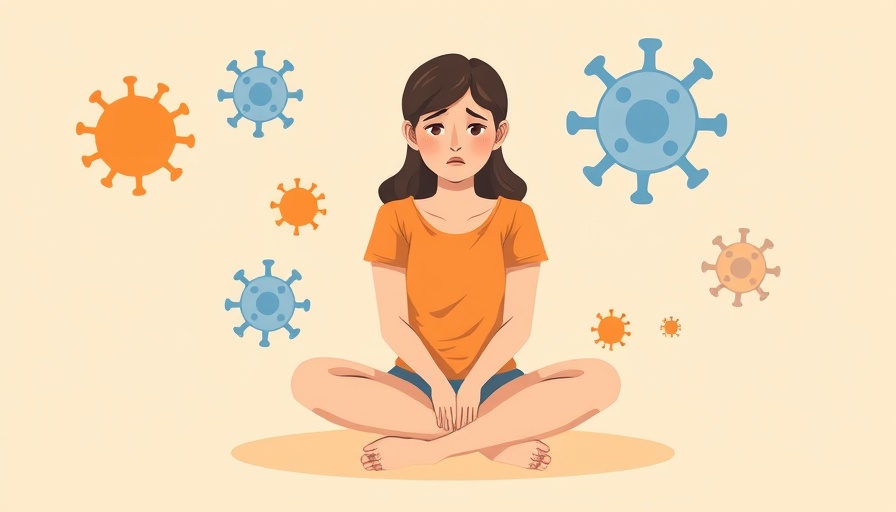
Understanding Autopoiesis in AI Systems
In recent years, the concept of autopoiesis, originally stemming from biological systems, has piqued interest as it applies to artificial intelligence (AI). Autopoiesis refers to the self-creating and self-maintaining nature of living organisms. Drawing parallels between biological autopoiesis and the self-learning capabilities of AI, researchers are exploring how these systems can be designed to autonomously grow and adapt. This exploration is increasingly timely, as many individuals—particularly those suffering from anxiety disorders—seek technologies that can enhance their mental health care.
The Relevance of AI in Mental Health Treatment
The intersection of AI and mental health is narrowing, revealing a promising landscape for innovation in treatment strategies. AI systems can be programmed to offer personalized mental health support, employing techniques such as cognitive behavioral therapy (CBT) and digital mindfulness resources, which are especially beneficial among the youth and those grappling with anxiety conditions. Given the rise of anxiety disorders like generalized anxiety disorder and social anxiety—exacerbated by societal issues like economic stress, COVID-19 anxiety, and stigma—this technologic advancement could serve as a vital resource.
Potential Benefits and Challenges of AI in Mental Health
While the integration of AI in mental health care presents unique advantages, including enhanced access for rural populations and potential reduction of stigma through anonymity, it is crucial to acknowledge the challenges. Factors such as data privacy, the need for effective early intervention strategies, and the risks of relying solely on digital platforms warrant careful consideration. Furthermore, while AI may assist in symptom management and relaxation techniques, it should not replace traditional face-to-face counseling, which remains critical for many patients, particularly the elderly and those experiencing comorbid conditions.
Future Predictions: AI's Role in Stress Management and Coping Strategies
As AI technology continues to evolve, future applications could encompass more sophisticated features, ranging from anxiety management apps to virtual support communities. Moreover, there is a growing call for collaboration between AI developers and mental health professionals to ensure tools are attuned to the nuanced needs of diverse populations, including vulnerable groups such as young adults, caregivers, and victims of trauma.
Community Involvement and Educational Outreach
Education plays a significant role in dismantling the stigma surrounding mental health issues, and community outreach initiatives can bolster awareness. Engaging with local stakeholders to develop school-based programs that teach stress management and emotional intelligence could enhance resilience among students. Such programs align with mental health policy efforts aimed at integrating psychological wellness education into school curriculums.
The Necessity for Holistic Approaches in AI Integration
As researchers and developers seek to integrate AI into mental health care, it is vital that they adopt a holistic approach, combining traditional therapeutic methods with innovative digital solutions. This includes maintaining emphasis on not only medication and psychotherapy but also incorporating alternative therapies such as art, music, and nature therapy, fostering comprehensive well-being. Future AI frameworks could benefit immensely from placing a strong emphasis on patient rights and community-based support.
Conclusion: A Call for Holistic Mental Health Solutions
In conclusion, as the conversation around AI’s role in mental health care continues to grow, it calls for a collaborative effort among tech developers, mental health professionals, and community advocates. By leveraging AI's capabilities to complement traditional methodologies while addressing access challenges and stigma reduction, we can create a more supportive environment for individuals grappling with anxiety and other mental health disorders. It is incumbent upon all stakeholders to advocate for responsible AI usage that prioritizes the health and well-being of all individuals, particularly the most vulnerable.
 Add Row
Add Row  Add
Add 




Write A Comment